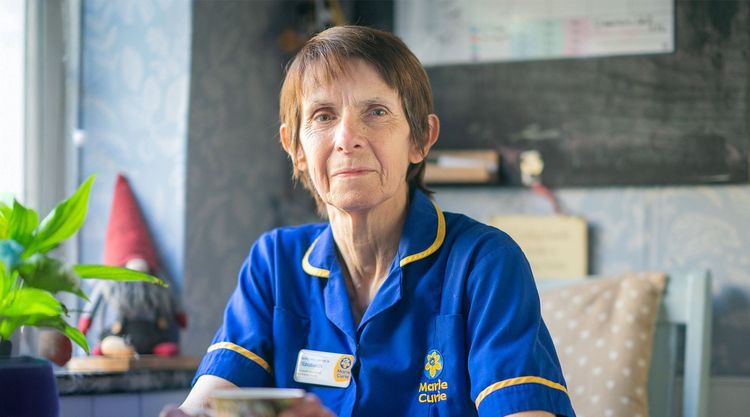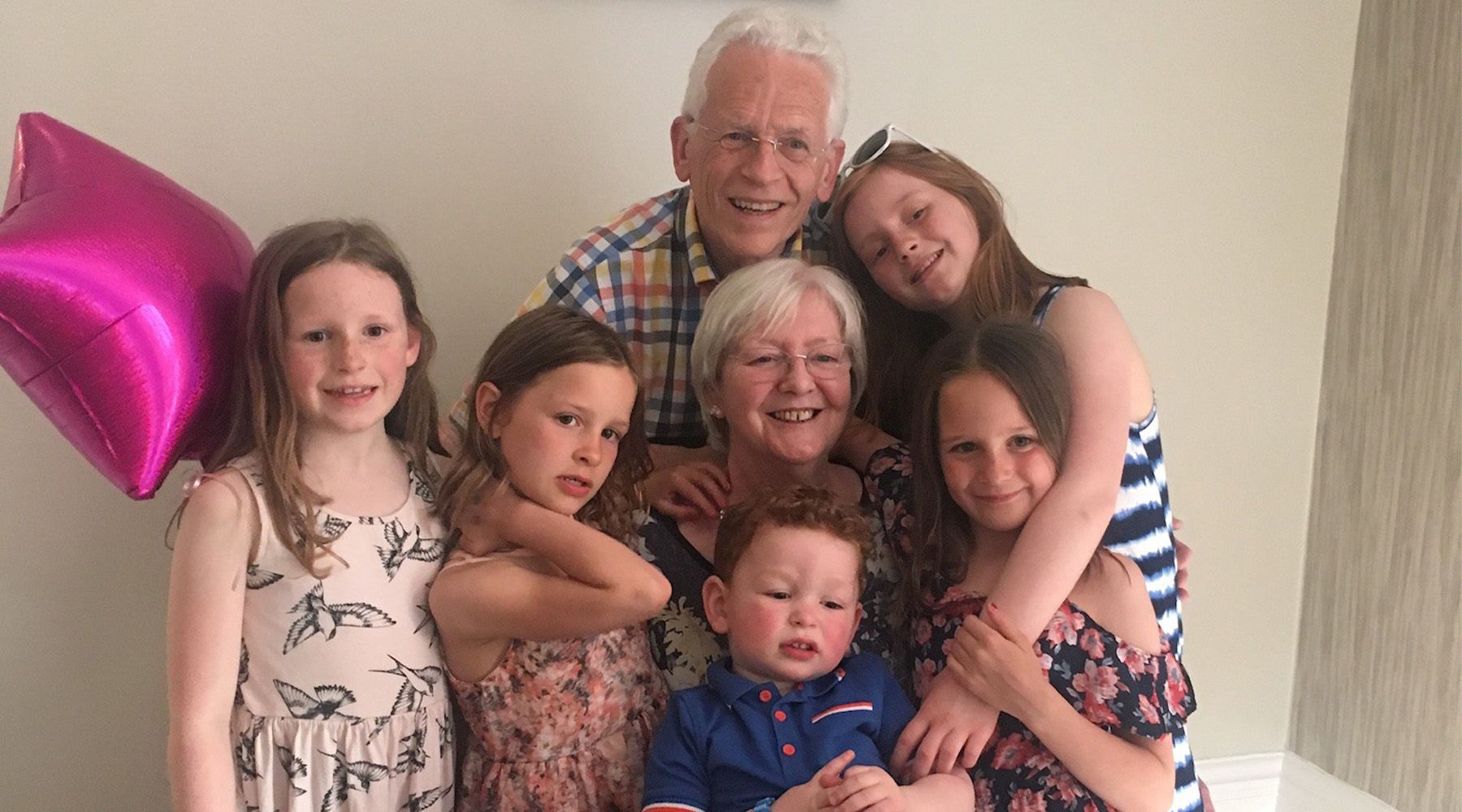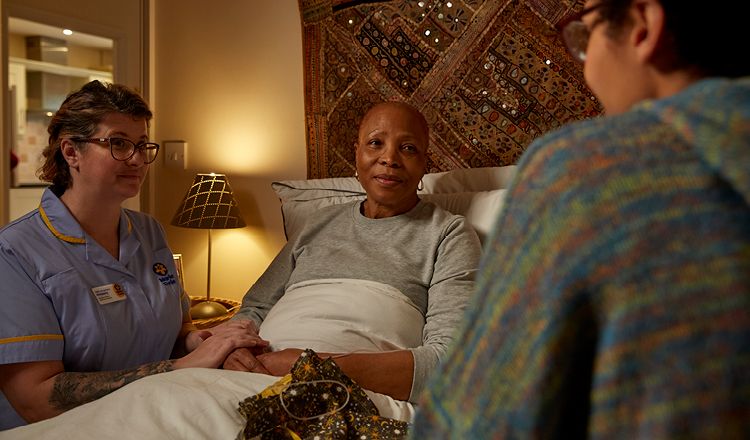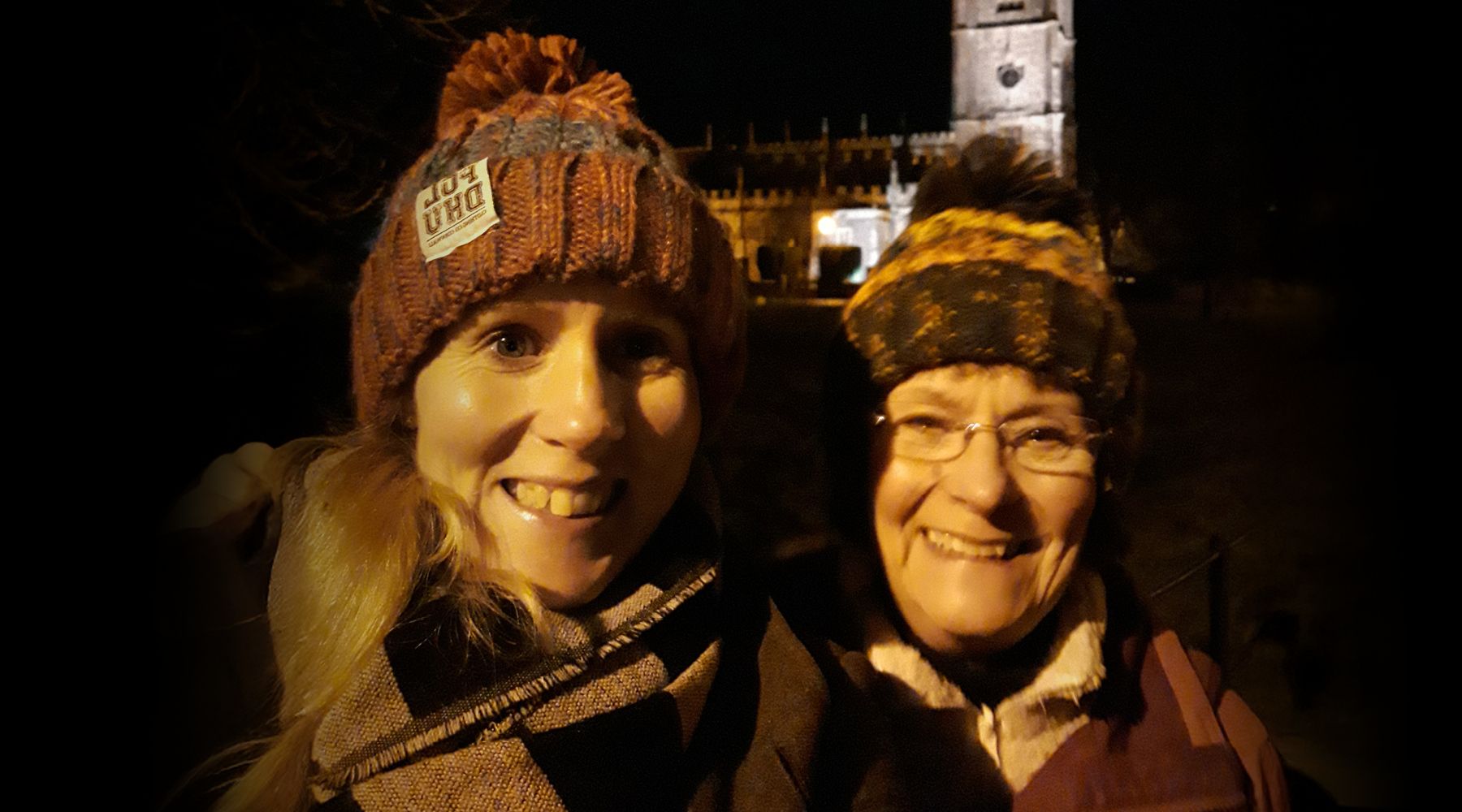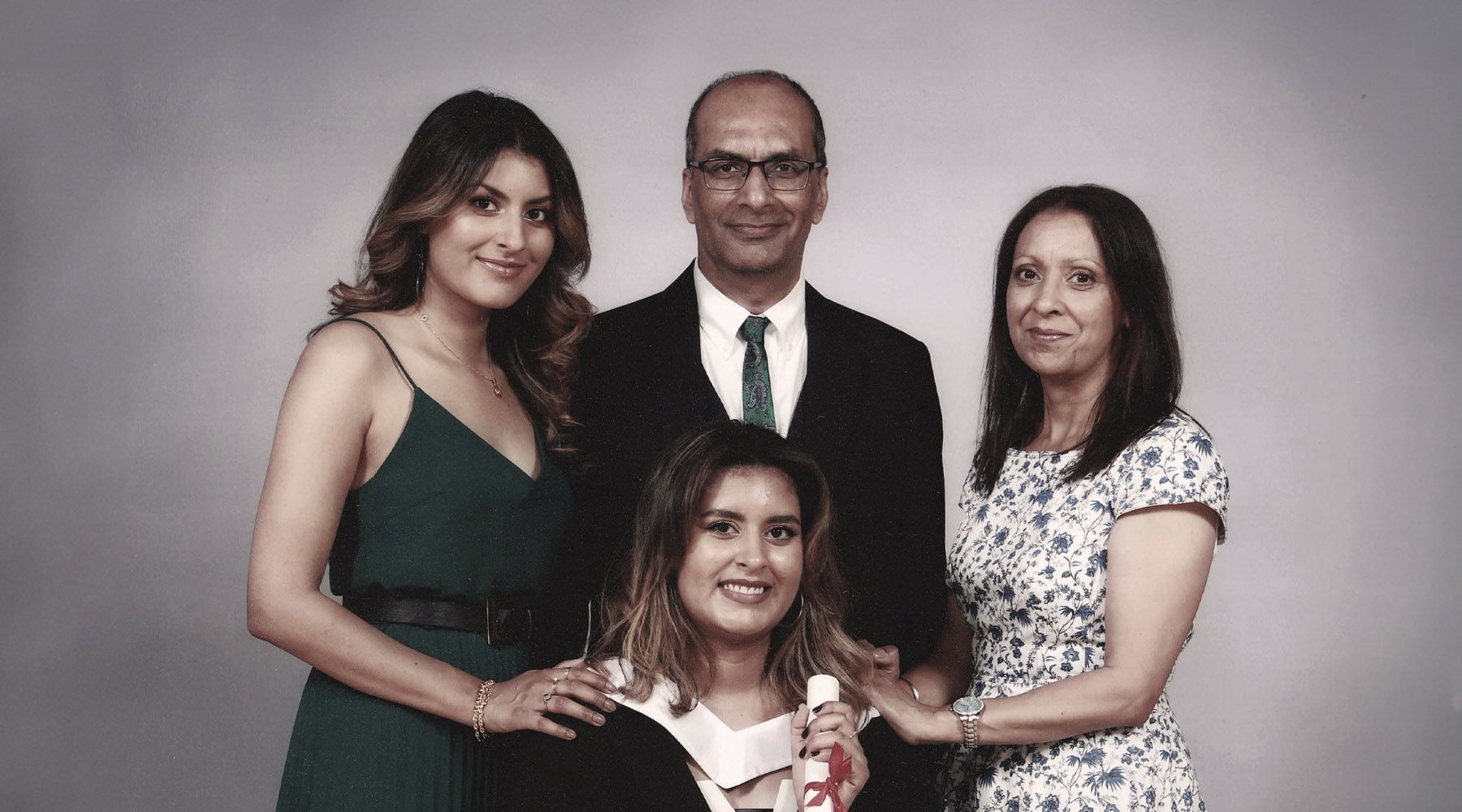For International Nurse's Day, we spoke with Liz Sherwood who's been a Marie Curie Nurse for nearly 20 years. Here, she speaks about her experience.
Marie Curie Nurses like me are highly trained in caring for anybody with any illness they’re likely to die from. We know the signs and symptoms, how illnesses might change, how conditions deteriorate. We know how to adapt, no matter what the illness is.
When I'm looking after somebody, even though they might not be able to interact with me, I’m holding their hand, talking to them, telling them what I'm doing and why I’m doing it and to not be afraid. I do everything and anything to make them comfortable.
From the moment I arrive
When I walk through the door, I always ask, “How have things been today and have there been any changes?” Just to get a picture of what's happening. Because a lot can change between the time when our visit is allocated and when we arrive.
Sometimes there may be friction in the family, so I try and calm things down. Or sometimes, the family have never seen someone dying, and I'm a stranger walking in, which may make them worry or uncomfortable. I stay calm and say, “Don't be afraid. We'll work through this together.”
After someone has passed
When someone dies, we always wait for the district nurses to come to verify the death. Then I will ask the family for their usual wash things and for their mum or dad’s favourite pyjamas. Or would they like their mum and dad to be dressed in a suit? What are their favourite clothes?
I always ask the family if they'd like to help me wash their loved one. I can manage it on my own, but often the family will say: “Yes please. This the last thing I will ever do for my mother or father.” And it's an honour. It's a privilege. It really is.
I also like to make them comfortable in the bed and put a bit of music on, maybe a little bunch of flowers at the side of the bed, a soft light on. Just to give the family a gentle memory of their loved one.
Being a Marie Curie Nurse is a privilege
Once, I looked after a gentleman with motor neurone disease. I can still picture him in his chair now. He was only 40. I was doing an overnight visit and his three-year-old girl and his wife, had been sleeping upstairs. At about half past six in the morning, his daughter came downstairs and said: “Is my daddy all right?”.
Her father was awake and so she asked if she could sit with him. I sat her on his lap and then his wife came downstairs and sat beside her husband and I tucked them all in together and put a blanket around them all. It was so overwhelming to see her sitting on her daddy's lap and all three of them together.
I do nights and days; I'll do anything at all. It's not like going to work. I'm so lucky. Lucky and privileged.
This International Nurse's Day, sponsor a nurse to help Marie Curie Nurses like Liz continue to provide the amazing care they do.
All rights reserved. Contact stories@mariecurie.org.uk for more information
